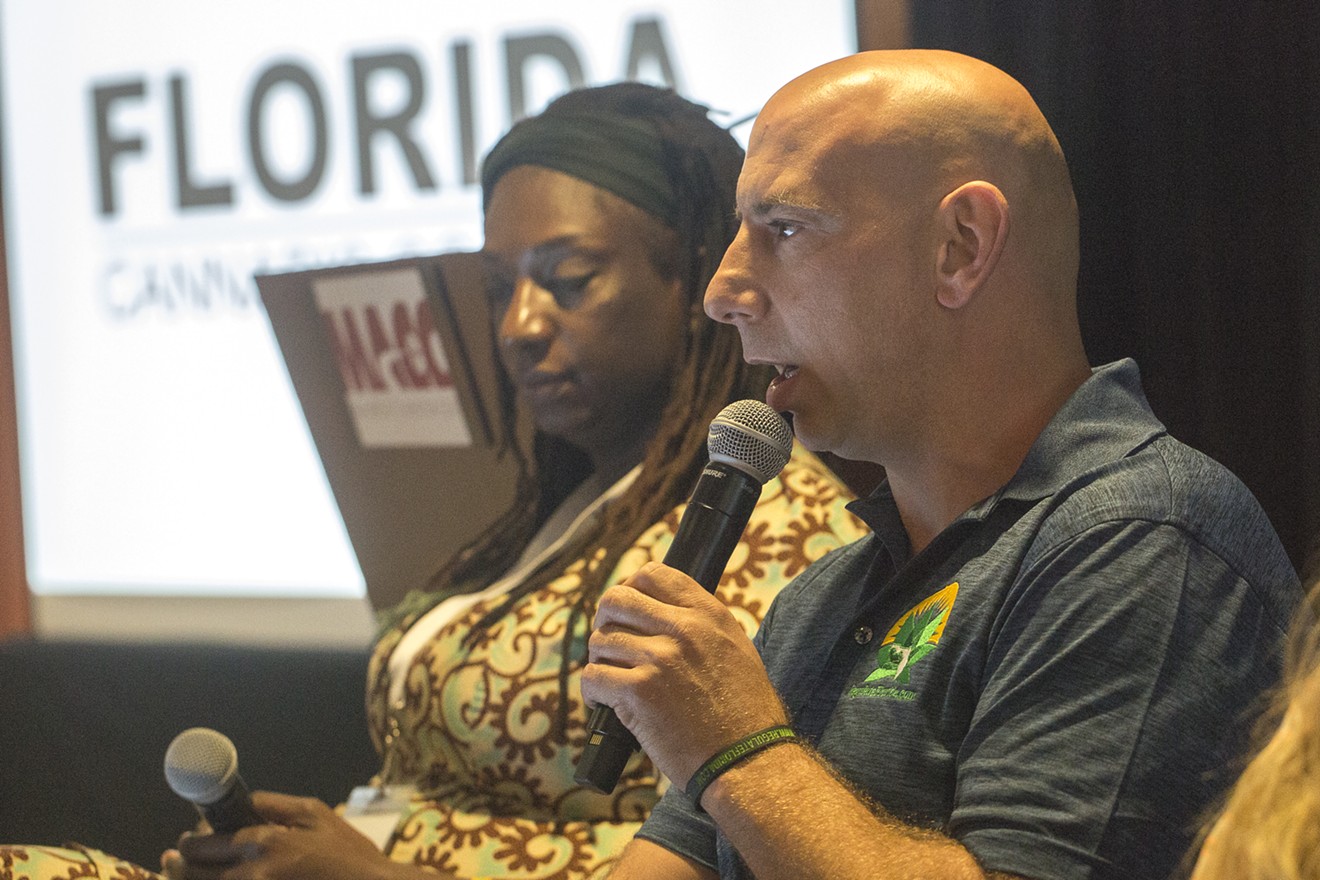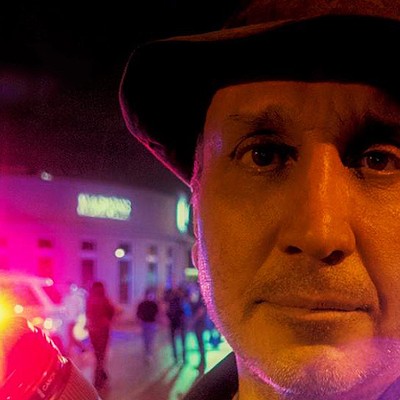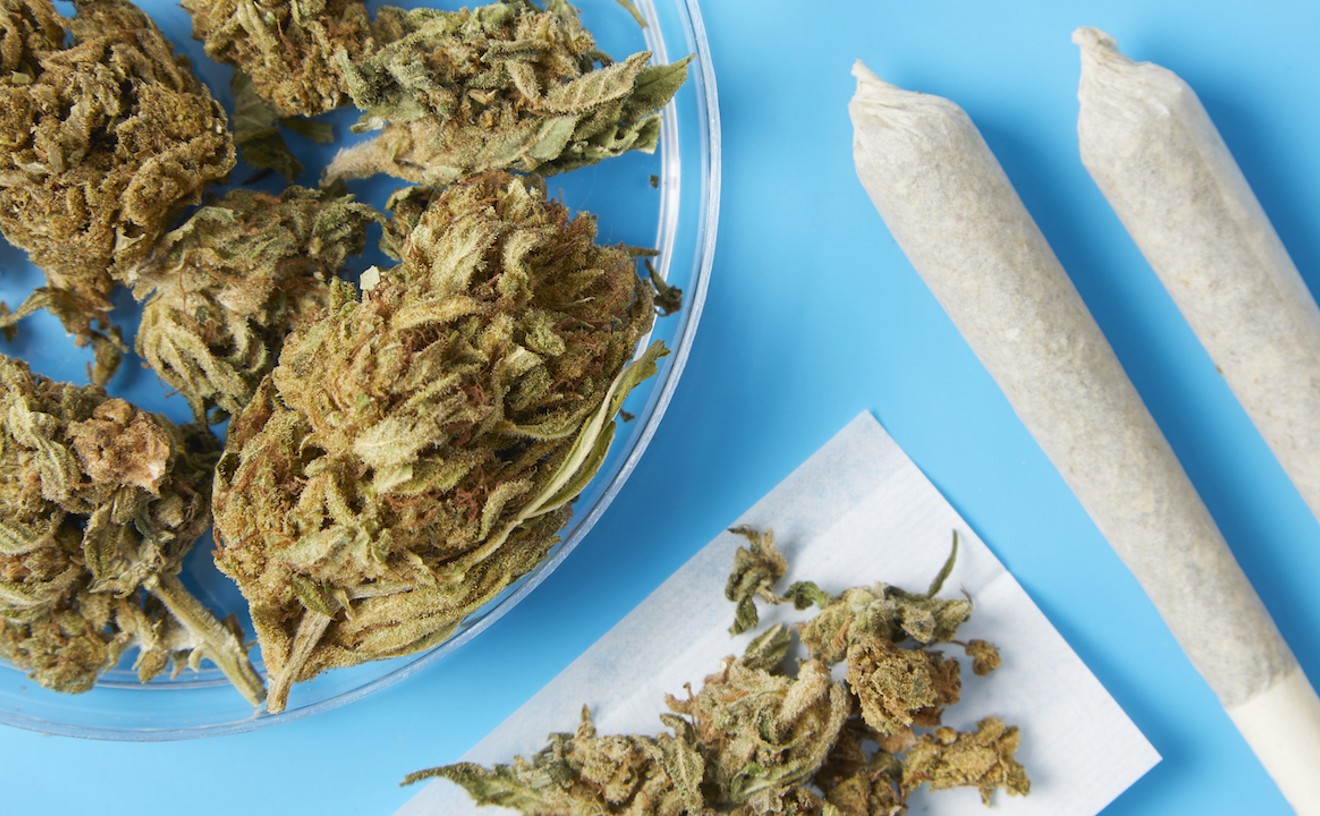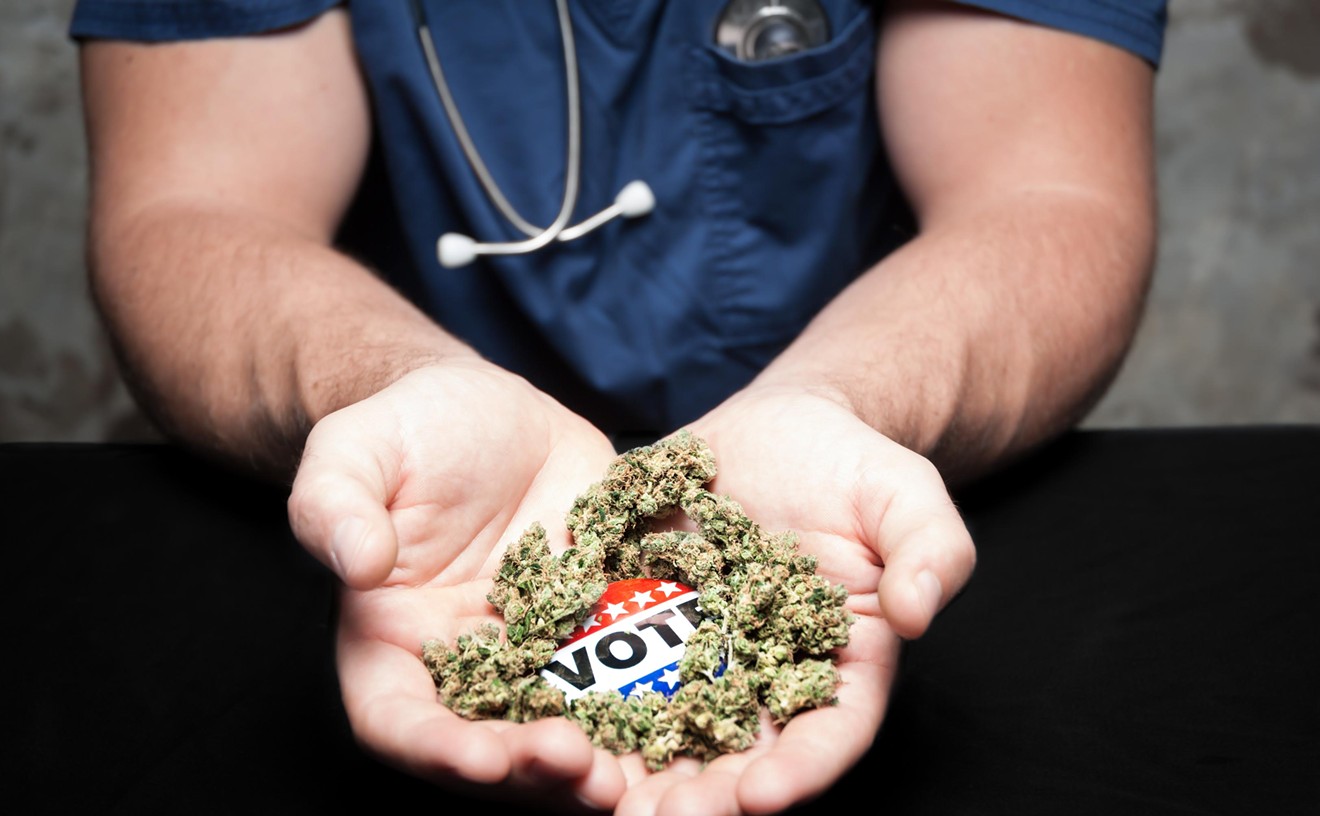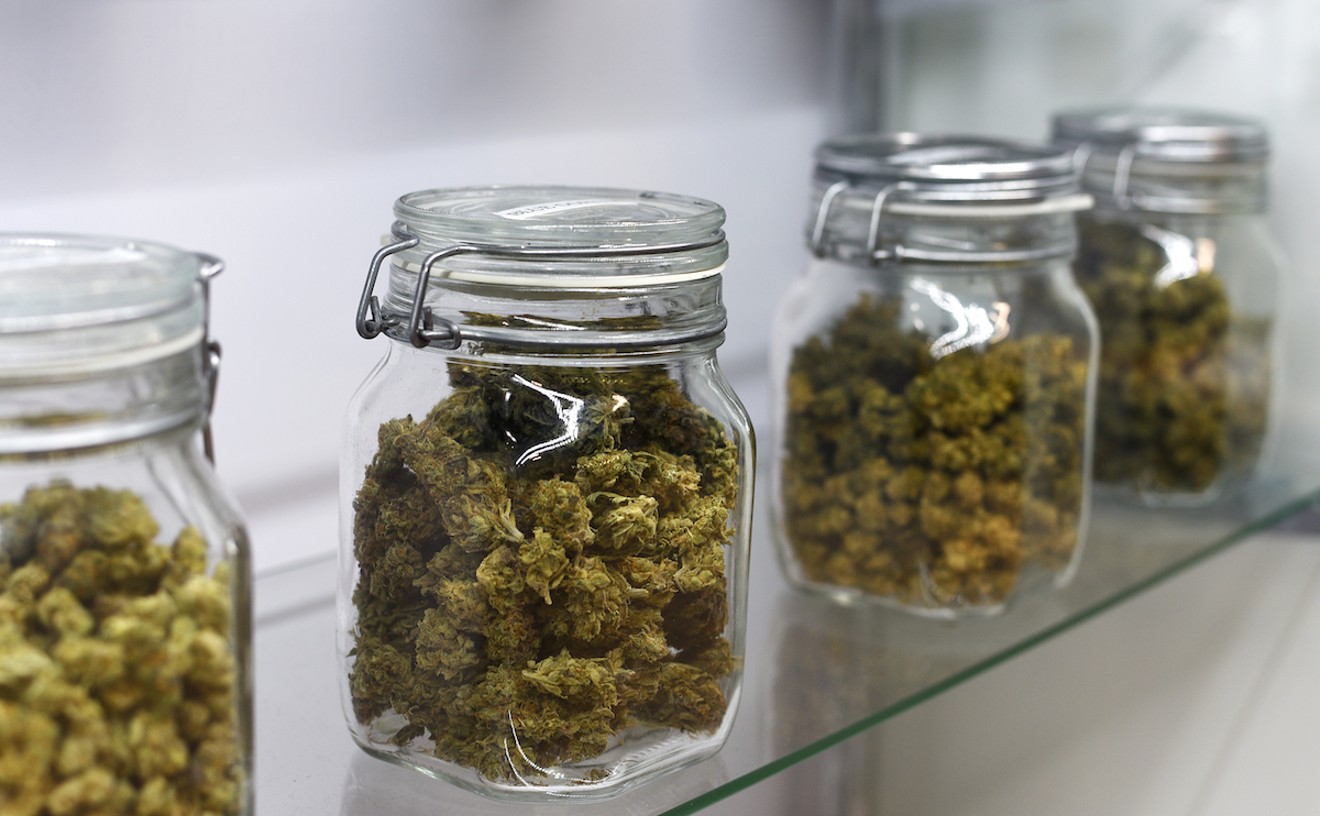Gov. Ron DeSantis signed the bill into law on June 7 in what the South Florida Sun-Sentinel described as an "arrogant abuse of political power."
The measure took effect immediately. It complicates the citizen initiative process, which allowed Floridians to legalize medical marijuana and restore voting rights to felons in 2016. Republican legislators would likely have rejected those proposals even though more than 60 percent of voters approved both.
“[House Bill 5] took away your legal right as a citizen and ripped and stripped the ideology of democracy away from people in this state,” says Mike Minardi, who heads Regulate Florida, one of 26 active petition drives affected by the new law.
Regulate Florida is petitioning to make marijuana legally accessible to anybody age 21 and over — and regulated like alcohol. The group has gathered more than 70,000 signatures, almost enough for judicial review through the Florida Supreme Court, a required step before reaching the 766,200 signatures required to place the initiative on the ballot.

Mike Minardi of Regulate Florida speaks on a panel during Saturday's Marijuana Hemp and Health Expo at the Doubletree Hotel by Miami International Airport. Cannabis attorney Scherill Murray Powell is in the background.
Carlos Miller
Colby Wise, a representative of Floridians for Freedom — which seeks to deregulate cannabis altogether, only restricting adults from selling cannabis to minors — does not believe the law will affect his organization either. It only uses volunteers to gather signatures. The measure, he points out, describes a “petition circulator” as “an entity or individual who collects signatures for compensation for the purpose of qualifying a proposed constitutional amendment for ballot placement.”
“Since we’re not paying people for petitions, we’re not compensating them," he says. "We don’t believe that section applies to us.”
But Floridians for Freedom have far fewer signatures than Regulate Florida and are not close to judicial review, which is based on two criteria. “One is that it encompasses a single subject, and number two, that the ballot summary is indicative and adequately explains what the amendment is about,” Minardi says.
Other active petition drives that are expected to go through a judicial review include raising the minimum wage to $10, opening primary elections to all parties, and banning the ownership of assault rifles, issues that would never be approved by the Legislature but would still need 60 percent voter approval.
The language addressing the citizen petition drives was added to an unrelated sales tax referendum bill on the last day of the 2019 legislative session after the proposal had died in committees. So it’s really two bills in one, resulting in a convoluted law that is likely unconstitutional, according to Section 6 of the Florida constitution, which states the following:
SECTION 6. Laws.—Every law shall embrace but one subject and matter properly connected therewith, and the subject shall be briefly expressed in the title. No law shall be revised or amended by reference to its title only. Laws to revise or amend shall set out in full the revised or amended act, section, subsection or paragraph of a subsection. The enacting clause of every law shall read: “Be It Enacted by the Legislature of the State of Florida.”In addition to requiring municipalities to place local tax initiatives on ballots during general elections, HB 5 makes it a misdemeanor to pay petition gatherers by the number of signatures they collect, which will drive up costs of gathering signatures.
The bill also requires that petitions be turned in to the county supervisors of elections within 30 days of being signed or be fined $50 per petition, which will also drive up costs.
Those fines shoot up to $250 and $1,000 respectively if petition organizers “acted willfully” when turning in petitions late or not turning them in at all.
That means petition organizers are required to submit all petitions, including the ones they know will not qualify for reasons like missing dates or illegible information, when they would normally send only the valid petitions.
That also increases mailing costs because up to 25 percent of ballots can be rejected with each new batch, one organizer said.
DeSantis said he signed the bill into law to protect the state constitution.
“What’s being done now is you have a bunch of out-of-state people — a major cottage industry, funded by special interests,” DeSantis told Tallahassee Reports.
But as Wise points out, the bill does nothing to stop out-of-state interests from funding the politicians.
“They say the fear is that out-of-state special interests would interfere with our constitution, yet they don’t mind those same shady characters interfering by getting people on the ballot,” he says.

